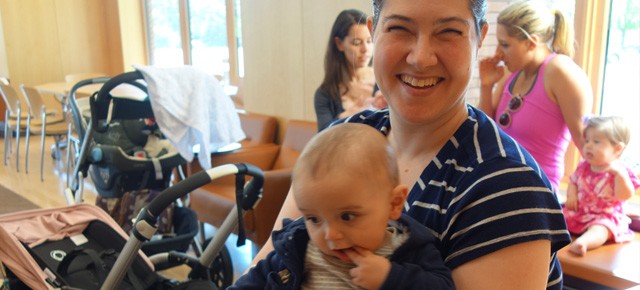
Birth
“To hold a newborn in our arms is to behold a miracle. “Where did you come from, little one?” we wonder as we gaze upon the face. “Where are you going? How long is your journey? What gifts do you carry? What songs will you sing” Nina Cardin, “The Tapestry of Jewish Time”
There are few joys greater than becoming parents and the journey of parenthood begins in celebration. Brit milah (circumcision) and simhat bat (“Celebration of a Daughter”) ceremonies give families, friends and the entire community an opportunity to rejoice in the miracle of birth. But more than simply a celebration of birth and giving of a Hebrew name, these ceremonies mark the entrance of the newborn into a brit (covenant) between God and the Jewish people.
3,500 years ago, at the base of Mt. Sinai, the Jewish people made a special promise- individually and as a community- to be God’s people and God’s partner in creation. By entering their newborn into that brit, parents renew the pledge made by our ancestors and begin the process of weaving this new life into the “tapestry of time” begun by Abraham and Sarah. That is, as much as it is a celebration of the baby, a brit milah/simhat bat is a public affirmation by parents that they will raise their child according to the patterns and beliefs of the Jewish people.
There is a Hebrew folk saying, recorded in the Bible, that indicates that a person’s name can captures something of his or her character: kishmo ken hu – like his name, so is he” (1 Samuel 25:25). Parents who name their daughter Rinah (meaning “song” or “joy”), for example, are expressing their desire that their daughter’s life be full of song and joy. For Ashkenezi Jews, it is traditional to name a child after a loved one who is recently deceased. Doing so, allows that family name to continue. Moreover, it captures the parent’s hope that the spirit and values of this relative will live on in the life of their child.
For further information on Jewish perspectives on birth control, abortion, infertility, adoption, and other related topics, check out the Beth El library or contact one of the rabbis.
